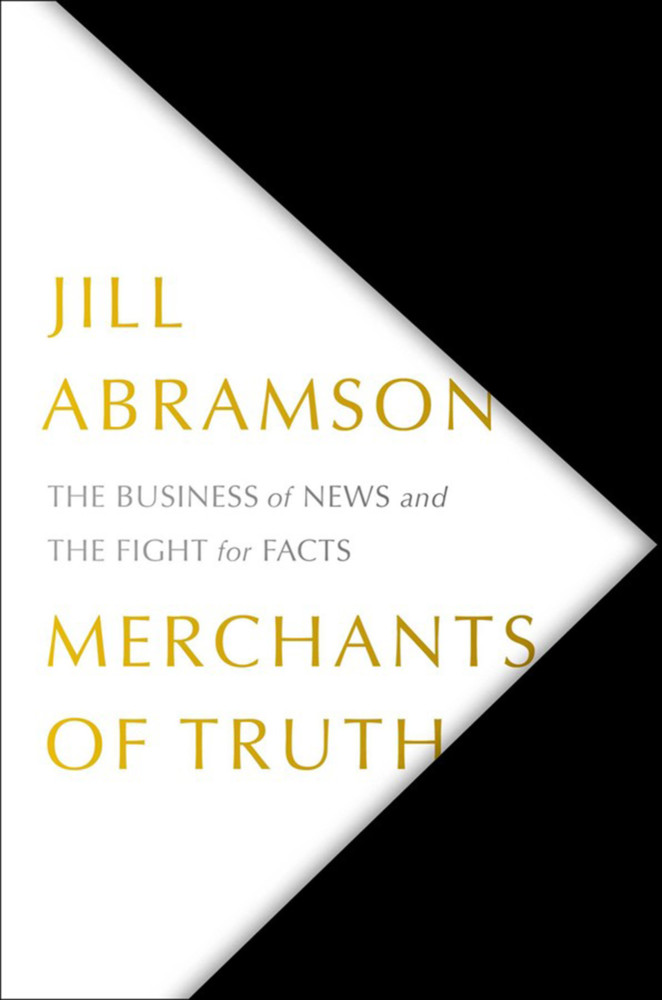By Anthony Marro
Newsday
WWR Article Summary (tl;dr) Anthony Marro, who was editor of Newsday from 1987 to 2003 shares his review of Jill Abramson’s new book “Merchants of Truth: The Business of News and the Fight for Facts.”
Newsday
Jill Abramson became the first woman executive editor of The New York Times in 2011, when newspapers everywhere were facing shrinking advertising, declining readership and fierce competition from the web. They were cutting staffs, news pages, foreign and domestic bureaus and in some cases shutting down completely.
Because of Craigslist and similar websites, the classified advertising that had accounted for 40 percent of newspaper revenues disappeared overnight. Circulation nose-dived as people began getting news from computers and smartphones. And the country was flooded with digital content that looked like news but was in fact advertising, entertainment and political propaganda posing as news. When Ben Smith created the first news operation at BuzzFeed in 2012, he said that the staff had so little understanding of traditional journalism that “They didn’t even know what rules they were breaking.”
Abramson’s tenure was brief. Three years into the job she was fired by the publisher, Arthur Sulzberger, Jr. In part it was because an internal study said she had been slow to integrate the paper’s website into the newsroom and had resisted efforts to help generate new revenue. In part it was because of a remarkably wrongheaded move in which she offered someone a job as co-managing editor without telling Dean Baquet, the popular managing editor, what she was doing. And in part it was because an evaluation by Sulzberger that she says told her, in effect, “People think you’re a b****.”
Abramson felt some of Sulzberger’s criticisms were sexist. But if she had failings as an editor, her new book, “Merchants of Truth: The Business of News and the Fight for Facts,” shows that she’s an excellent reporter and a talented writer. It’s a lively, engaging, provocative and important book about the difficulties of doing honest journalism when there’s less money to pay for it.
The book focuses on two formerly wealthy and powerful newspapers, the Times and The Washington Post, that were threatened by the changes, and two wildly successful digital startups, BuzzFeed and Vice, that began doing serious news after developing huge audiences by offering pictures of dogs wearing sunglasses and “native advertising” puff pieces about paying clients disguised as news. Abramson writes that the two newcomers, along with other digital media, “were giving the old guard serious competition, and heartburn.”
She shows how newspapers were slow to embrace the new technologies, with many journalists looking down on digital staffers. She shows missed opportunities, with Sulzberger declining to invest in Google, and The Washington Post allowing Mark Zuckerberg renege on an agreement to let it buy 10 percent of Facebook. And she describes in compelling detail how the Sulzbergers managed to save the Times while the Graham family, which owned the Post, was forced to sell the Post.
buy tadalafil generic buy tadalafil online no prescription
“Merchants of Truth” has been criticized for several supposed errors and for score-settling, and Fox News gloated that the book claims the Times news pages are “unmistakably anti-Trump.” She also has been accused of plagiarism.
It’s hard to find any 400-page book without a few minor errors, and score-settling is to be expected given that Abramson was driven out of the Times like a typhoid carrier. But it’s a solid work, and she in fact has high praise for the Times’ coverage of the president.
Abramson believes the Times and the Post have performed a great public service with their coverage of a dangerously inept presidency, showing the urgency of a free press and the role that traditional reporting still plays. She applauds Jeff Bezos, the founder of Amazon, who bought the Post and is using his great personal wealth to revive an important news organization at an important time.
She remains troubled by the evisceration of local news; by fake news and foreign intervention; by Facebook’s eschewing standards to ensure material on its platform is truthful and fair; by the polarization that has people choosing only those news outlets that reinforce their predispositions; and by cable television’s reliance on punditry, which is cheap, rather than on reporting, which is costly. And she’s troubled by the ongoing volatility that caused recent cutbacks in the news units of BuzzFeed and Vice.
What’s at risk today, Abramson says, is not just the media industry but “truth and freedom in a democratic society, an informed citizenry, and news sources that above politics in their reporting.” All of which makes her appreciative of the man who fired her. “During the darkest financial hours, Sulzberger had kept the lights on,” she concludes, ensuring the Times would remain “a beacon of truth and fierce protector of facts.”
Anthony Marro was editor of Newsday from 1987 to 2003.














































































































































































































































































































































































